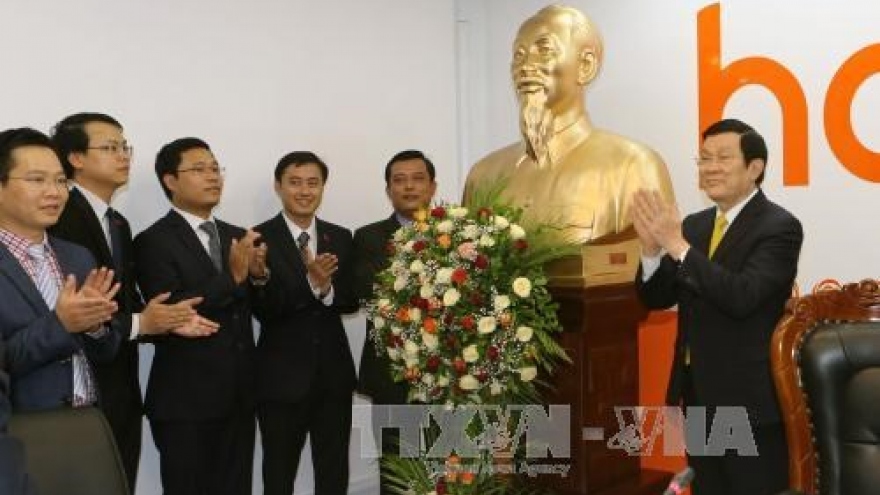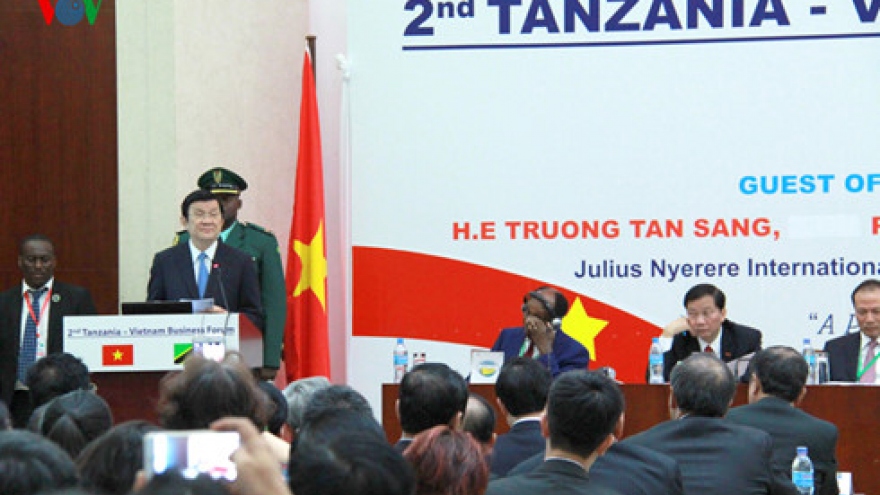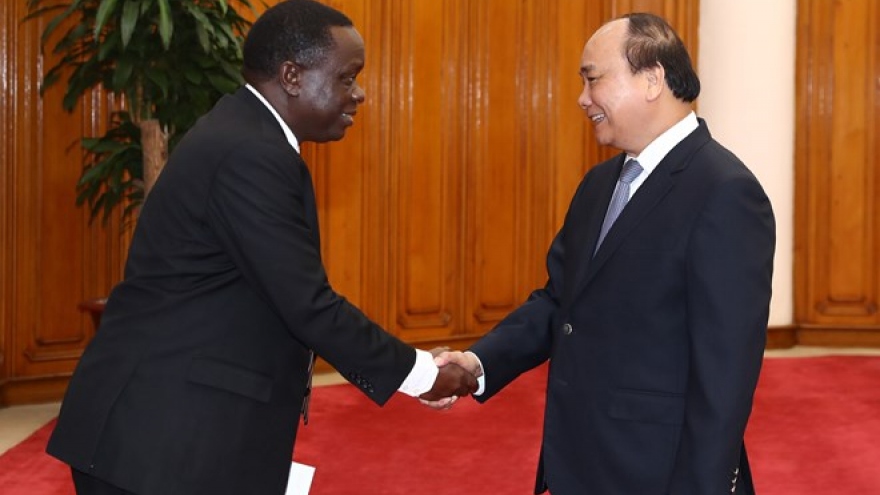Building the future of trade with Tanzania and East Africa
VOV.VN - Tanzania has been one of the fastest-growing countries on the African continent over the past decade, but commercial trade between the Vietnamese and Tanzanian private sectors remains limited, say the experts.
 |
Mr Hoan, who is the deputy general director of the Africa, West Asia, South Asia Markets, noted that Tanzania is best known for its vibrant tourism industry (Mount Kilimanjaro, Serengeti National Park, Zanzibar).
In addition, he added, Tanzania has significant mineral wealth and is home to the Port of Dar es Salaam, one of the major ports in the EAC.
Despite the country’s stability, Tanzania ranked only 139th in the World Bank 2016 Ease of Doing Business Rankings, below Vietnam (82nd) and other countries in the EAC such as Rwanda (62nd), Kenya (108th), and Uganda (122nd).
Given that the Port of Dar es Salaam handles cargo coming from several landlocked countries in East Africa and beyond (Rwanda, Burundi, Malawi, Zambia, and the Democratic Republic of the Congo), improving trade infrastructure in Tanzania is critical for the success of both it and the region.
The economy of Tanzania is among the fastest in the developing world having experienced annual GDP growth of over 7%, which has outpaced that of Vietnam over the past decade, according to reports by the African Development Bank and the International Monetary Fund.
Primarily because of lack of trade and investment promotion efforts undertaken over the past several years, by the two countries business communities, said Mr Hoan, Vietnamese trade with Tanzania remains limited.
While Vietnamese total imports and exports with Tanzania rose nearly three-fold from US$60 million in 2011 to US$175 million in 2016, Tanzania still makes up a small fraction of the country’s trade with the EAC as well as the rest of the globe.
Agriculture is the mainstay of the Tanzanian economy, contributing over 30% of GDP and employing 67% of the labour force, with women constituting more than 70% of the workforce.
The African country’s major exports include coffee, cotton, tea, sisal, tobacco, cashew nuts, and minerals. Together, agricultural exports accounted for roughly 60% of all exports, while manufactured products constitute less than 20% of exports.
Tanzanian imports range the gamut of products including machinery, transport and equipment (capital goods); oil, crude oil, petroleum products, industrial raw materials (intermediate goods); and finally, textiles, apparel, and food and foodstuffs (consumer goods).
Countries of the EU are the major sources of imports, though their importance has declined considerably as the importance of Asian and African countries have concomitantly increased over the past decade.
The most important African and Asian trading partners of Tanzanian businesses (for both exports and imports) include Japan, India, Hong Kong, China, Singapore, Kenya, Zambia, and Burundi.
Trade facilitation agreements
Over the next few years, the EU could see its share of Tanzanian trade increase as its new reciprocal trade agreement comes into force, Mr Hoan emphasized. The EAC is currently negotiating an Economic Partnership Agreement with the EU, which is expected to increase bilateral trade between the two regional organizations.
The deal was finalized in October 2014; however, ratification had been delayed until January 2017. The agreement is a reciprocal trade agreement that will grant EAC countries duty-free and quota-free access to the EU market.
In contrast, the Vietnam government has yet to sign such an agreement with Tanzania that would lift many of the tariff and non-tariff trade barriers related to trade.
Bottlenecks
Bottlenecks or congestion points that delay shipments and increase the cost of trade is another significant barrier to increased trade between the two countries private sectors, said Mr Hoan.
In Tanzania, many of these bottlenecks are caused by inadequate or aging infrastructure. East African countries and their partners are in the process of implementing new hard infrastructure solutions to overcome these bottlenecks.
Investment opportunities
East Africa possesses enormous potential for investment from Vietnamese companies, he said, particularly as its and other governments in the EAC privatize industries, improve infrastructure, and reduce trade barriers.
Massive amounts of funds are currently being funnelled into large infrastructure projects across the region, creating opportunities for Vietnamese companies not only in new and existing infrastructure initiatives but also in other industries including tourism, agriculture, manufacturing, and energy.
Potential
Mr Hoan suggested that Tanzania and East African infrastructure development would help fulfil this gross potential by helping to greatly improve road, rail, and maritime transportation in the region in decades to come, thereby helping lower transport costs, reducing delivery times, and improving productivity.
Specifically, newer railroads would improve freight times and decongest the region’s road networks, while a new Bagamoyo Port would create a new international trade hub that would help integrate East Africa into global supply chains.
To continue to improve commercial trade, the Vietnam and Tanzania governments need to continue to cooperate in developing soft infrastructure projects and reduce impediments to trade, Mr Hoan concluded.
Most notably, by both governments continuing to digitize customs processes, creating single customs windows amongst streamlining other customs clearance procedures, increased Vietnamese trade not only with Tanzania but the entire EAC would surely continue to expand over decades to come.



